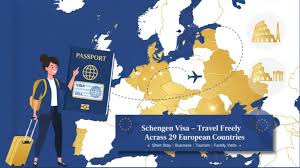
The Mediterranean region, known for its breathtaking landscapes, rich cultural heritage, and diverse ecosystems, is a popular destination for travelers worldwide. However, the rise in tourism has also raised concerns about environmental degradation, cultural erosion, and the sustainability of local communities. As awareness of these issues grows, many travelers are seeking ways to explore this stunning region responsibly. This article explores sustainable travel practices in the Mediterranean, highlighting the importance of protecting its natural beauty and cultural heritage while enjoying all it has to offer.
Understanding Sustainable Travel
Sustainable travel is about minimizing the negative impacts of tourism while maximizing the benefits for local communities and the environment. It encourages travelers to make conscious choices that support conservation efforts, respect local cultures, and reduce their carbon footprint. In the Mediterranean, this means considering the ecological and social impacts of travel decisions, from transportation and accommodation to dining and activities.
Choosing Eco-Friendly Transportation
Transportation is one of the largest contributors to carbon emissions in tourism. When traveling in the Mediterranean, consider using eco-friendly modes of transport. For shorter distances, walking or cycling is a fantastic way to explore cities like Barcelona or Dubrovnik. Many cities offer bike rental programs, making it easy to enjoy the sights at a leisurely pace while reducing your carbon footprint.
For longer distances, consider taking trains or buses instead of flying. The Mediterranean has a well-developed rail network, and trains are often a more sustainable option. For example, traveling from Florence to Rome by train is not only efficient but also provides stunning views of the Tuscan countryside.
When considering a Mediterranean cruise, look for lines that prioritize sustainability, utilizing cleaner fuels and minimizing waste. Some cruise lines are making significant strides in eco-friendly practices, such as reducing single-use plastics and supporting local communities at their ports of call.
Supporting Local Economies
One of the most rewarding aspects of traveling is the opportunity to engage with local cultures and economies. By supporting local businesses, travelers can contribute to the sustainability of the communities they visit. Seek out locally owned accommodations, restaurants, and shops. Staying in small, family-run guesthouses often provides a more authentic experience while benefiting local families directly.
Dining at local restaurants allows you to taste authentic Mediterranean cuisine while supporting local farmers and producers. Look for eateries that prioritize seasonal ingredients and traditional cooking methods. Not only does this support local agriculture, but it also reduces the carbon footprint associated with transporting food over long distances.
Embracing Responsible Tourism Activities
When participating in activities, choose options that prioritize sustainability. The Mediterranean offers a wide range of eco-friendly excursions, such as guided nature walks, kayaking, and snorkeling tours that focus on environmental education and conservation.
In places like the Amalfi Coast, opt for hiking the Sentiero degli Dei (Path of the Gods) instead of driving. This not only minimizes pollution but also allows you to experience the breathtaking landscapes and unique flora and fauna of the region. Many hiking trails in the Mediterranean are well-marked and provide opportunities to learn about local ecosystems.
For water activities, seek out companies that emphasize responsible practices, such as not disturbing marine life and using eco-friendly equipment. Organizations that focus on marine conservation and education, like those in the Balearic Islands, offer fantastic opportunities to enjoy the beauty of the Mediterranean Sea while fostering a sense of stewardship for its preservation.
Reducing Waste
Waste management is a significant challenge in many Mediterranean tourist destinations. Travelers can play a crucial role in reducing waste by adopting simple practices during their journey. One of the most effective ways is to minimize single-use plastics. Bring a reusable water bottle, shopping bag, and utensils to reduce your plastic footprint.
When dining out, ask for food and drinks to be served without straws or plastic containers. Many Mediterranean countries are making strides to reduce plastic usage, and local businesses will appreciate your commitment to sustainability.
Additionally, participate in local clean-up events or initiatives. Many coastal areas organize beach clean-ups to tackle litter and plastic pollution, and joining these efforts can be a fulfilling way to give back to the communities you visit.
Conservation of Natural Resources
Water scarcity is a pressing issue in many Mediterranean regions, particularly during the summer months. Travelers can help conserve water by being mindful of their consumption. Simple practices, such as taking shorter showers, reusing towels in hotels, and being cautious with water while washing dishes, can make a significant difference.
When exploring natural parks or protected areas, respect local regulations and guidelines to minimize your impact on delicate ecosystems. Stick to marked trails, avoid picking plants, and never disturb wildlife. Engaging with local conservation organizations can also provide insights into how to be a responsible traveler.
Cultural Respect and Engagement
Respecting local cultures is a cornerstone of sustainable travel. Each Mediterranean country boasts its own unique traditions, languages, and customs. Take the time to learn about the local culture and history before you arrive. This understanding can enhance your experience and foster a deeper connection with the places you visit.
Engage with local communities through cultural experiences, such as cooking classes or artisan workshops. These interactions can provide valuable insights into traditional practices and support local artisans. By purchasing handmade crafts instead of mass-produced souvenirs, travelers can help sustain local craftsmanship and cultural heritage.
Educating Yourself and Others
One of the most impactful ways to promote sustainable travel is through education. As travelers, we have the power to influence our peers and encourage them to adopt responsible practices. Share your experiences and knowledge about sustainability with friends, family, and fellow travelers.
Participating in workshops or seminars on sustainable travel can further enhance your understanding and equip you with the tools to make a positive impact. Many organizations and travel bloggers focus on eco-friendly practices, providing valuable resources for conscious travelers.
The Future of Sustainable Travel in the Mediterranean
As the Mediterranean continues to face challenges related to tourism, environmental degradation, and climate change, the importance of sustainable travel practices cannot be overstated. By adopting eco-friendly behaviors, supporting local economies, and respecting cultures, travelers can contribute to the preservation of this beautiful region.
Governments, local communities, and tourism organizations are increasingly recognizing the need for sustainable practices, and many are implementing initiatives to protect the environment and promote responsible tourism. As travelers become more aware of their impact, the demand for sustainable options will likely drive further innovations in the industry.
Conclusion: A Collective Responsibility
Sustainable travel practices in the Mediterranean are not just about individual choices; they reflect a collective responsibility to protect the region’s natural and cultural treasures for future generations. By embracing eco-friendly habits and supporting local communities, travelers can contribute to a more sustainable future while enjoying the rich experiences that the Mediterranean has to offer.
Ultimately, the goal of sustainable travel is to create a harmonious balance between exploration and preservation. As travelers embark on their journeys, whether it’s through hiking in the hills of Tuscany or exploring the ancient ruins of Athens, they can do so with the knowledge that their actions can lead to a more sustainable and vibrant Mediterranean.
Write and Win: Participate in Creative writing Contest & International Essay Contest and win fabulous prizes.


